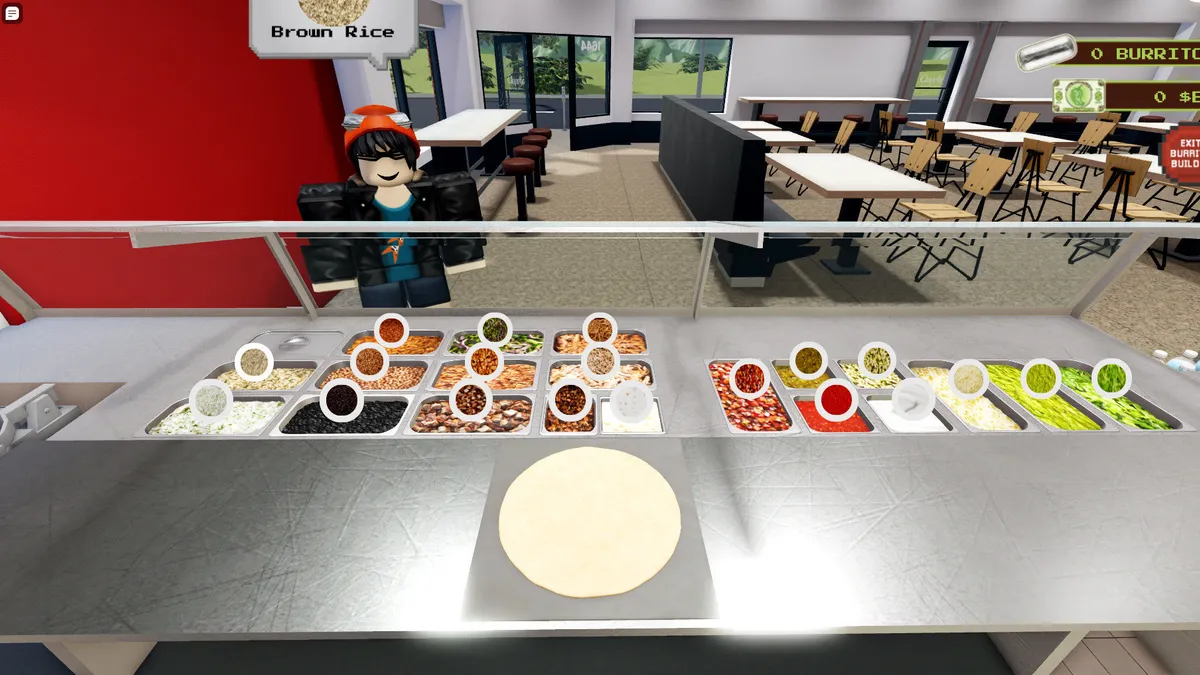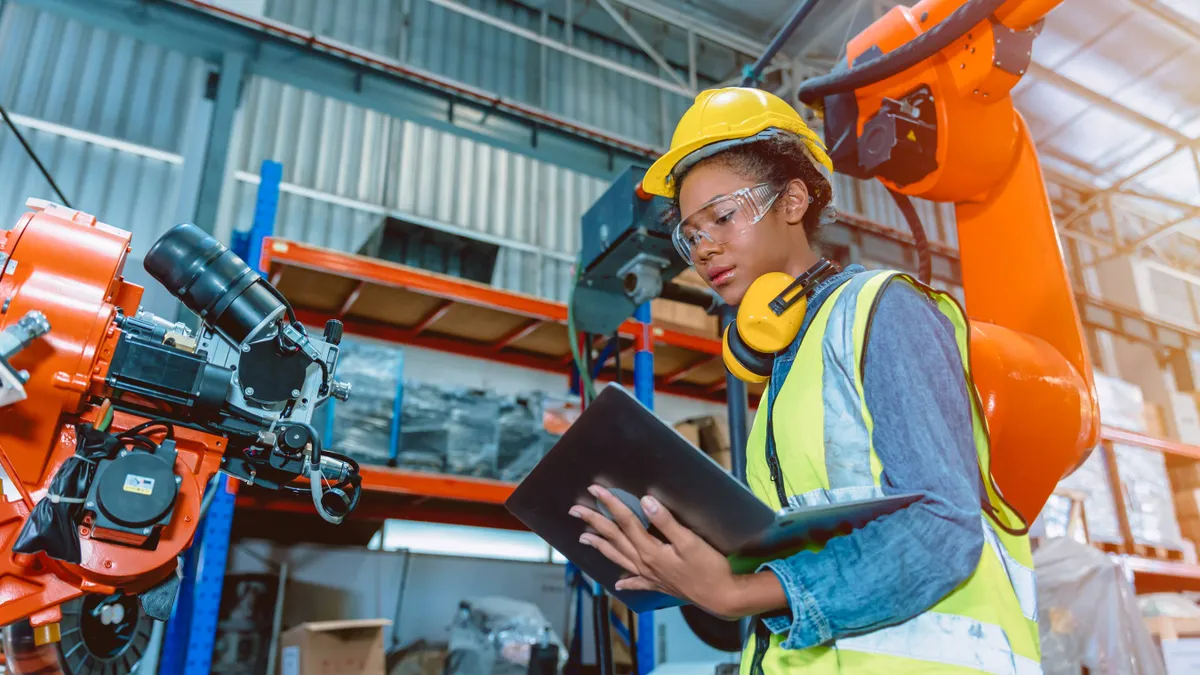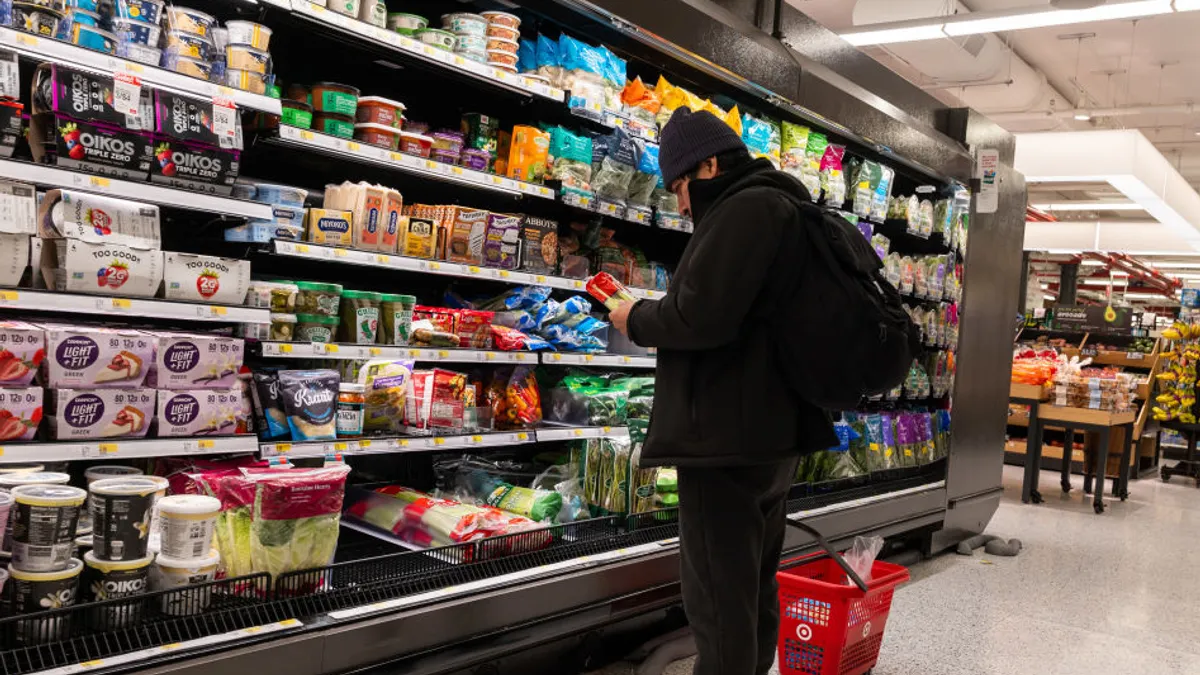Chipotle Mexican Grill CFO Jack Hartung is a self-described optimist who views a recent pause in the rise of ingredient costs as a “shallow victory” against soaring inflation. He'll take it anyway.
“I never thought I’d be celebrating or be relieved because we had a month and a half — we’re talking six weeks —where we didn’t see a price increase because normally the visibility in pricing and supply when you have a company of our size is much, much longer,” he said in an interview last week. “That’s the kind of cycle that we’re in.”
Not all ingredients are holding steady even as overall there was no “stair-step” move up on the "basket" of ingredients that the company buys to make its burritos and other menu items. In the first quarter the company reported food, beverage and packaging costs were 31% of total revenue, an increase of 100 basis points compared to the year-earlier period, with inflation impacting beef, and avocados, according to a company release.
Hartung isn’t certain that the current leveling off signals a full reprieve. “I’d love it to be that inflation continues to pause and that our ingredient costs are stable here on out and I’d love to be able to say six months from now that we’ve not increased our prices,” Hartung said. “But we’ll see. It all just depends on the inflationary environment.” Similarly, he told analysts last month he would "not build a reduction in food costs" in if he were going to build a model this year.
Over the past 12 months through the first quarter the company has increased prices three times for a total cumulative rise of about 10% compared to the more typical annual price hike in the 2% range, he said. The price increase partially offset cumulative inflation the company faced over the same period of 13%-14% stemming from a combination of higher ingredient and energy prices along with rising wages, he said.
Some of the cost increases that Chipotle is facing are intertwined with geopolitical unrest and ongoing supply chain snarls. For instance, the company doesn’t buy anything from Ukraine but the war there has disrupted wheat exports. That in turn has driven up the costs of the tortillas that Chipotle buys, he said.
One of Hartung’s latest concerns is the impact of potential fertilizer shortages on produce. Fertilizer “is not impacting the ingredients we’re buying today but if there is a shortage and there are price pressures on fertilizers, that will impact the price of produce when it’s harvested later in the year,” Hartung said. In November produce associations across North America said shortages of fertilizers and pesticides were threatening the next growing cycle, according to sister publication Supply Chain Dive.
Going local
Inflation was a key pressure on the company’s recent earnings. In the first quarter Chipotle’s total revenue rose 16% to $2 billion from the year-earlier period, with restaurant level operating margin of 20.7%, down from 22.3% in the year-earlier period. “Our restaurant margins remain bumpy due to inflation,” CEO Brian Niccol said on the company’s first quarter earnings call, adding that the company has the ability to recover margins over time with the growth in pricing power.
Chipotle is not alone in seeking to raise prices to offset inflationary cost increases. The rising cost of inputs has prompted companies of all sizes to pass on higher prices to consumers as the producer price index for final demand, a measure of what suppliers charge, soared 10% in February from the prior year and the consumer price index (CPI) increased 8.5% year-over-year in March.
Looking more long-term Hartung said the company would like to have more control over the costs of the products and ingredients it buys by continuing to move toward using local ingredients. Already, the company in 2021 purchased over 35.7 million pounds of local produce, compared to over 31 million in 2020, according to the company’s sustainability reports. Hartung also said the company can do the same with other products it needs.
“The packaging for most of the business comes from outside the U.S. and it would be great for us to co-invest with partners to build some capacity here in the U.S.,” he said. “The closer you can get the sourcing to our restaurants, that’s going to be more stable.”
As for his macro outlook, Hartung is encouraged by the Federal Reserve’s recent efforts to tamp down inflation by raising interest rates. Fed officials last week approved a half point increase. If inflation persists at the current level, Hartung would view that as a “runaway inflation” situation that would require more aggressive moves from the Fed. He envisions a brighter scenario.
“I’m just going to believe there’s going to be a little bit of a return to normal and if that happens then I think the economy, the restaurant industry and Chipotle will do great,” Hartung said.






















